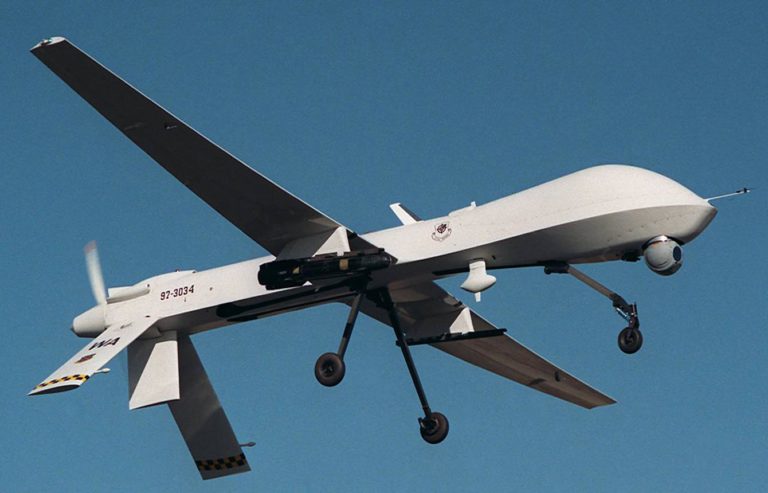I offer a close reading of the legal and political discourses by means of which the United States government recently has sought to legitimate its use of weaponized drones to carry out targeted assassinations of suspected anti-U.S. combatants abroad. Situating my analysis in the context of philosophical approaches to the problem of truth and linguistic reference, I examine official government speeches, legal documents, and reports of civilian casualties. My semiological critique of these texts is carried out both within and against the “humanitarian” framework of just war theory, my dual approach being necessitated by the twofold strategy of the government’s justificatory rhetoric: on the one hand, the government’s public discourse distorts the accepted meaning of certain unambiguous and pragmatically functional legal signifiers (the jus ad bellum use of terms such as self-defense, imminence, and necessity, for example); on the other hand, it exploits the uncertainty that is endemic to some of those very same terms (necessity and proportionality in particular) when they are used to refer to the jus in bello quantification and valuation of incommensurable variables—of, typically, a particular number of civilian casualties relative to the amount of “military advantage” to be derived from the attack that “unintentionally” produces those casualties.
Articles by Vaheed Ramazani
Vaheed Ramazani is Professor of French at Tulane University, where he holds the Kathryn B. Gore Chair in French Studies. His areas of specialization include nineteenth-century French literature and culture; critical theory; gender studies; film and media; trauma and cultural memory; and international humanitarian law and ethics. He is the author of The Free Indirect Mode: Flaubert and the Poetics of Irony (University Press of Virginia) and Writing in Pain: Literature, History, and the Culture of Denial (Palgrave Macmillan).
